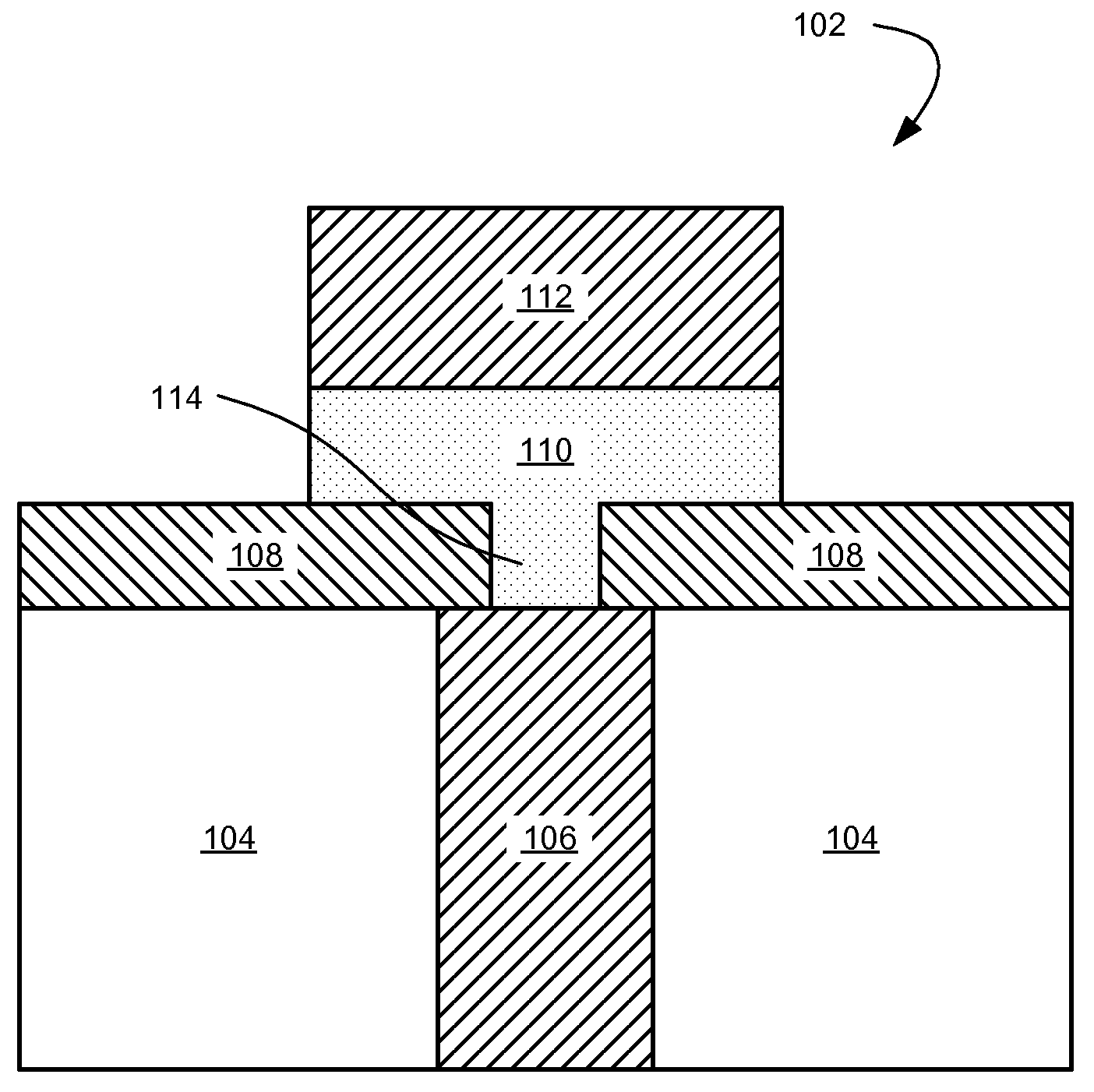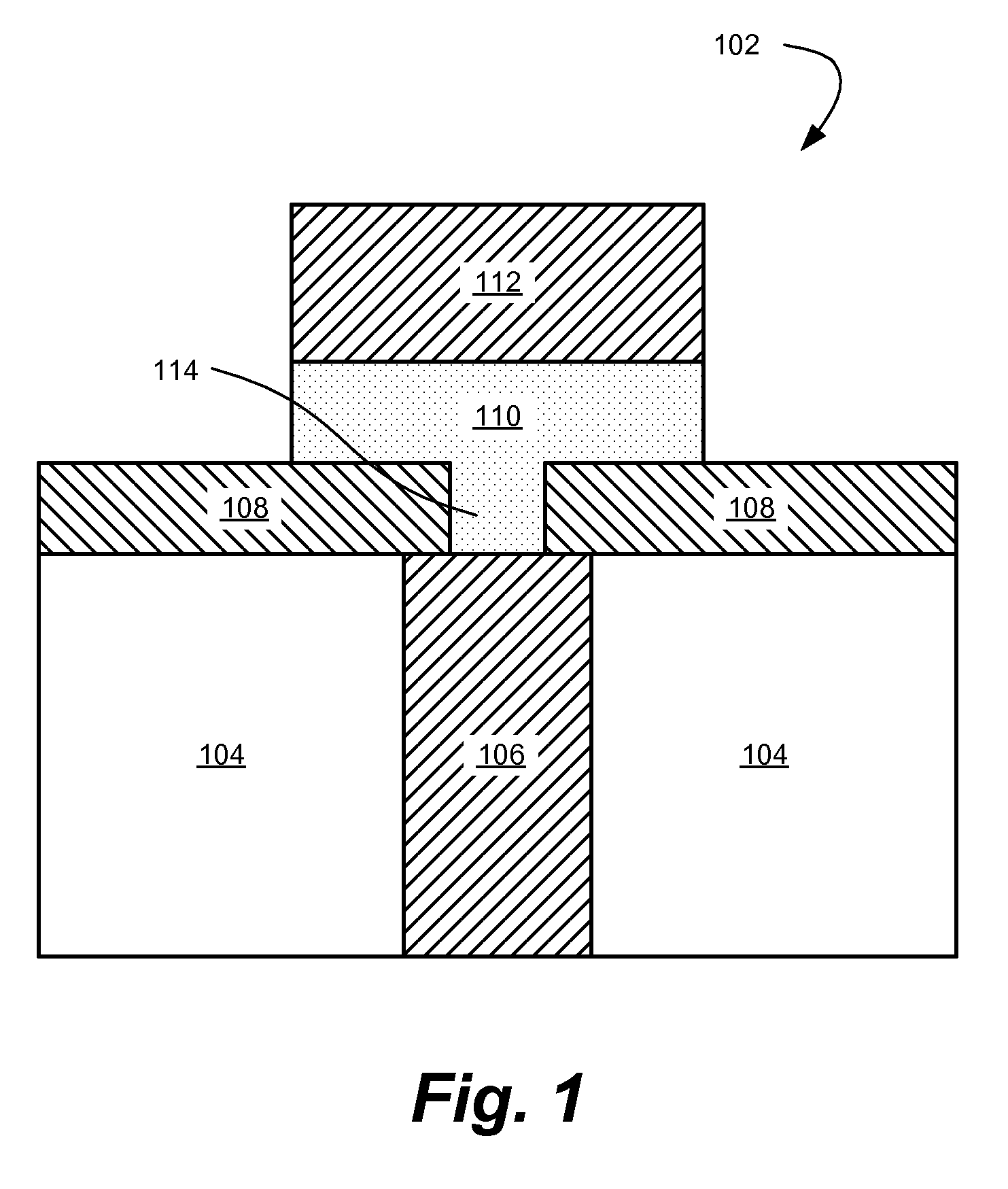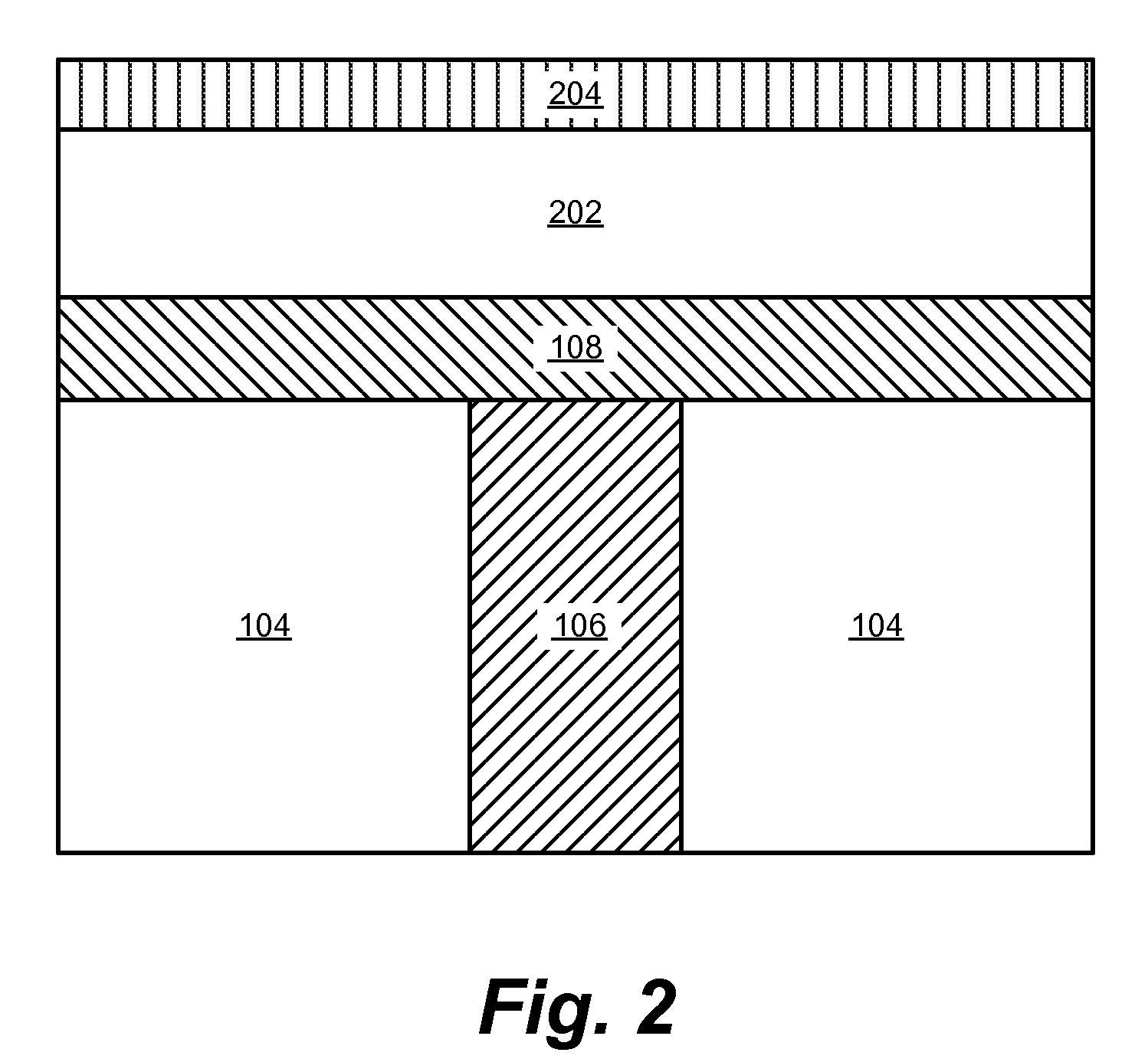Uniform critical dimension size pore for pcram application
a critical dimension and pore technology, applied in the field of computer memory, can solve the problem that the change material does not utilize chalcogen
- Summary
- Abstract
- Description
- Claims
- Application Information
AI Technical Summary
Benefits of technology
Problems solved by technology
Method used
Image
Examples
Embodiment Construction
[0017]The present invention is described herein with reference to embodiments of the invention. Throughout the description of the invention reference is made to FIGS. 1-8. When referring to the figures, like structures and elements shown throughout are indicated with like reference numerals.
[0018]FIG. 1 illustrates the cross sectional view of an exemplary memory cell 102 contemplated by the present invention. The exemplary memory cell 102 is comprised of an insulating layer 104, a bottom electrode 106, an intermediate insulating layer 108, a pore 114 within the intermediate insulating layer that contains phase change material 110, and an upper electrode 112. The memory cell 102 is typically formed on a substrate with metal-oxide-semiconductor field-effect transistors (MOSFETs) (not shown). Other switching devices known to those skilled in the art, such as junction FETs and bipolar junction transistors, may be used with the present invention.
[0019]In FIG. 2 an exemplary embodiment of...
PUM
| Property | Measurement | Unit |
|---|---|---|
| thickness | aaaaa | aaaaa |
| diameter | aaaaa | aaaaa |
| thick | aaaaa | aaaaa |
Abstract
Description
Claims
Application Information
 Login to View More
Login to View More - R&D
- Intellectual Property
- Life Sciences
- Materials
- Tech Scout
- Unparalleled Data Quality
- Higher Quality Content
- 60% Fewer Hallucinations
Browse by: Latest US Patents, China's latest patents, Technical Efficacy Thesaurus, Application Domain, Technology Topic, Popular Technical Reports.
© 2025 PatSnap. All rights reserved.Legal|Privacy policy|Modern Slavery Act Transparency Statement|Sitemap|About US| Contact US: help@patsnap.com



